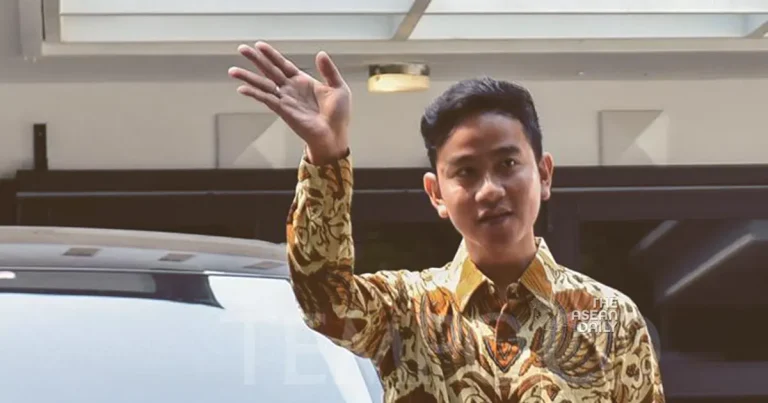28-12-2023 (JAKARTA) Gibran Rakabuming Raka, the son of Indonesian President Joko Widodo and a candidate for vice-president, has defied criticism surrounding allegations of nepotism and political inexperience. In a televised debate on December 23, ahead of the presidential election scheduled for February 14, the 36-year-old impressed observers with his performance against heavyweight contenders, Law and Security Minister Mahfud MD and seasoned Muslim politician Muhaimin Iskandar.
Analysts noted that Gibran’s performance exceeded expectations, drawing parallels with his father’s communication style. Employing a measured speech with technical jargon, he left his opponents struggling to respond. One notable tactic was questioning Mahfud about regulations on capturing and storing carbon dioxide and quizzing Muhaimin on the SGIE, cleverly omitting that it stood for the State of Global Islamic Economy.
Dr. Ambang Priyonggo, a political analyst from Multimedia Nusantara University, commented on the resemblance to President Jokowi’s debate style in the 2019 election, citing the use of terms like ‘unicorn’ that left opponents, including Prabowo Subianto, perplexed. This strategic communication approach reinforces the perception that Gibran and presidential candidate Prabowo Subianto are continuing Jokowi’s leadership.
The debate primarily focused on the economy, playing to Gibran’s strengths as the mayor of Solo in Central Java for the past two years. Political analyst Wasisto Raharjo Jati pointed out that while Mahfud and Muhaimin excelled in law and religious issues, they lacked Gibran’s decision-making prowess and ability to engage young and first-time voters with policy solutions.
Gibran’s adept use of theatrics also contributed to his appeal. Displaying gestures of respect, such as bowing and kissing the hands of opponents, and rallying cheers from younger supporters, he successfully combined performative aspects with substantive issues. Yoes Kenawas, a research fellow at Atma Jaya Catholic University, highlighted the importance of both technical knowledge and strategic thinking for an effective presidential team.
Despite acknowledging Indonesia’s progress under President Widodo, Yoes expressed doubts about the sustainability and equity of the country’s development strategies. While statistics show impressive achievements, challenges such as dependence on state support, inequality, and corruption persist.
Nevertheless, the tactics employed by the Prabowo-Gibran pair seem to be paying off, according to recent popularity polls. A survey by Indikator Politik Indonesia on Boxing Day indicated that Prabowo and Gibran would secure 46.7% of the vote, while their closest rivals, Ganjar Pranowo and Mahfud, were expected to garner 24.5%. Another survey by the Centre for Strategic and International Studies conducted between December 13 and 18 showed a strong lead for Prabowo and Gibran with 43.7% support.
Political analyst Arya Fernandes noted that there is still time for trailing candidates to reverse the tide, with 10.9% of respondents undecided and 24.8% open to changing their minds. However, analysts pointed out that Ganjar and Mahfud lack clarity in their political branding, unlike Prabowo and Gibran, who are clear about continuing Jokowi’s legacy.
Ganjar’s campaign team disputed the poll results, asserting positive sentiments for their candidate pairing. Andi Widjajanto, the team’s political deputy, stated that the Ganjar-Mahfud campaign strategy is on the right track, signaling a rebound. As the election date approaches, the dynamics of the presidential race in Indonesia remain fluid, with opportunities for candidates to shape public opinion and secure voter support.




